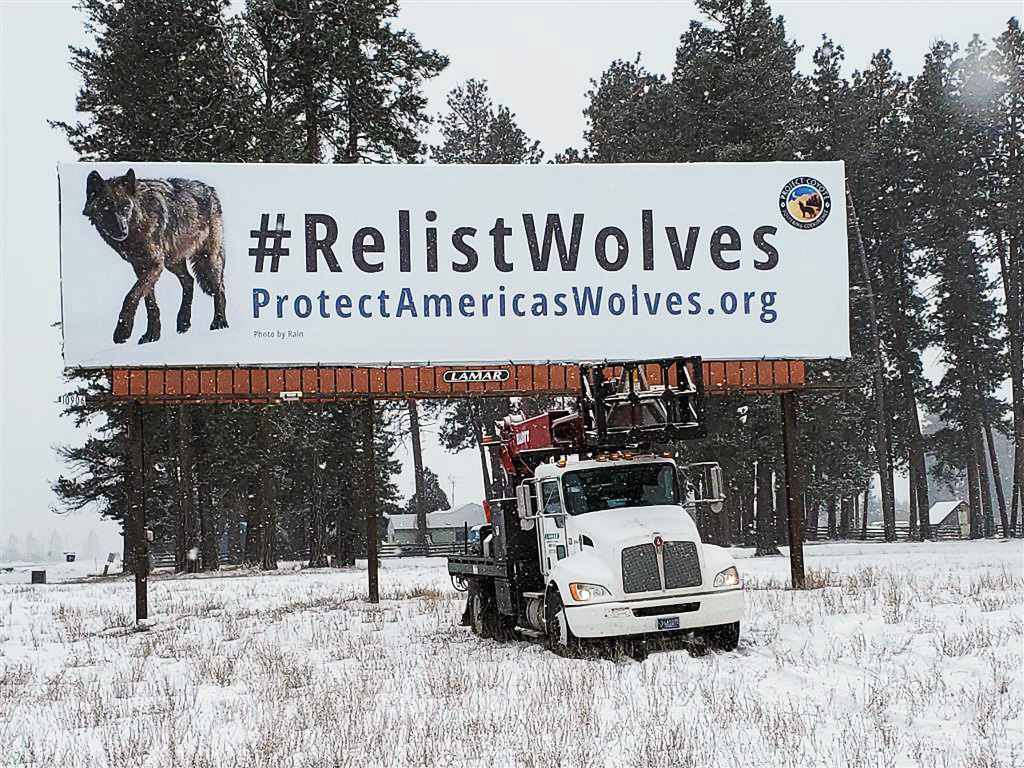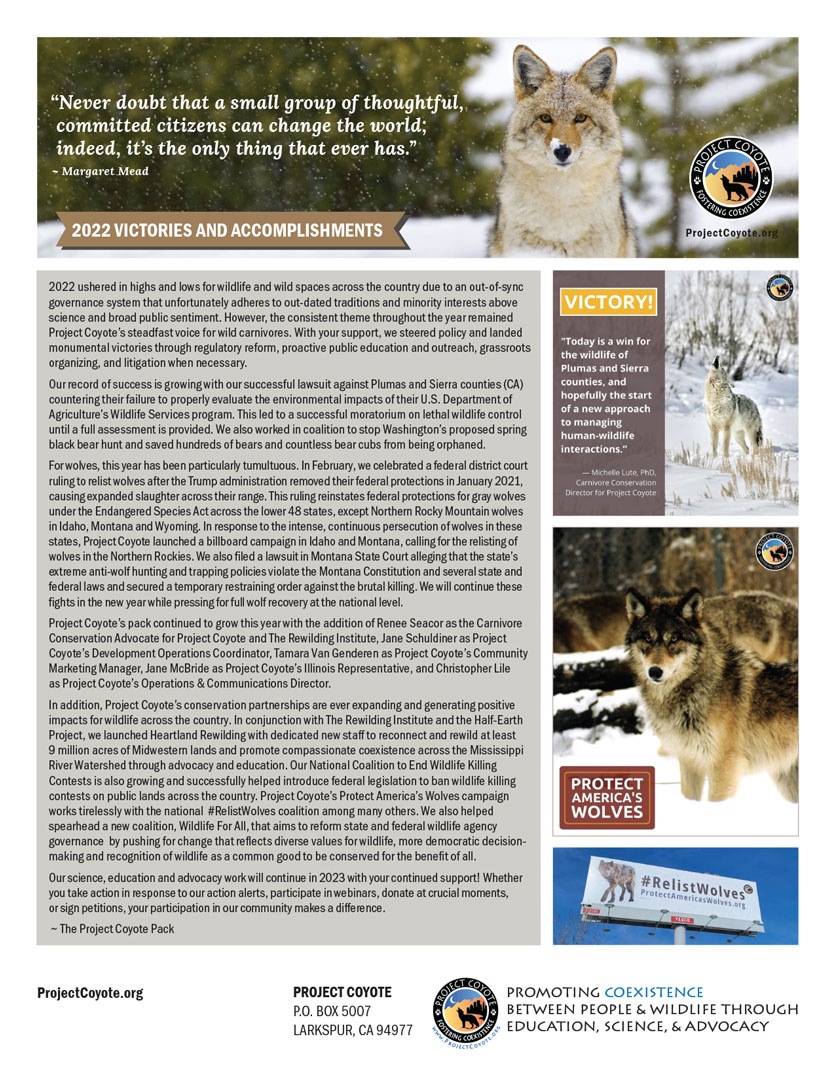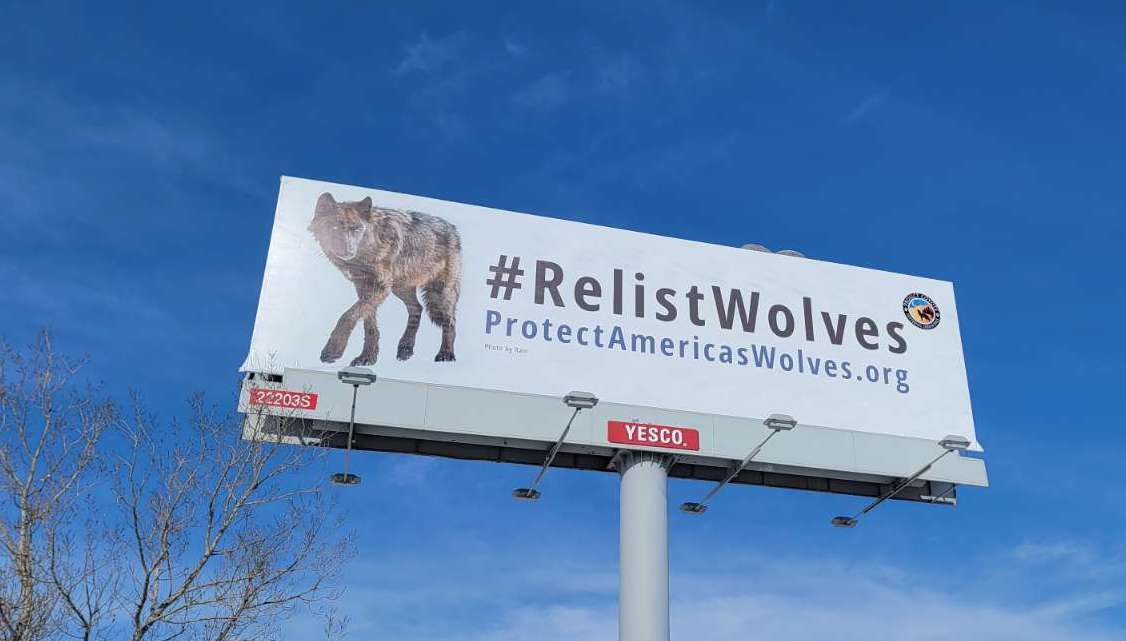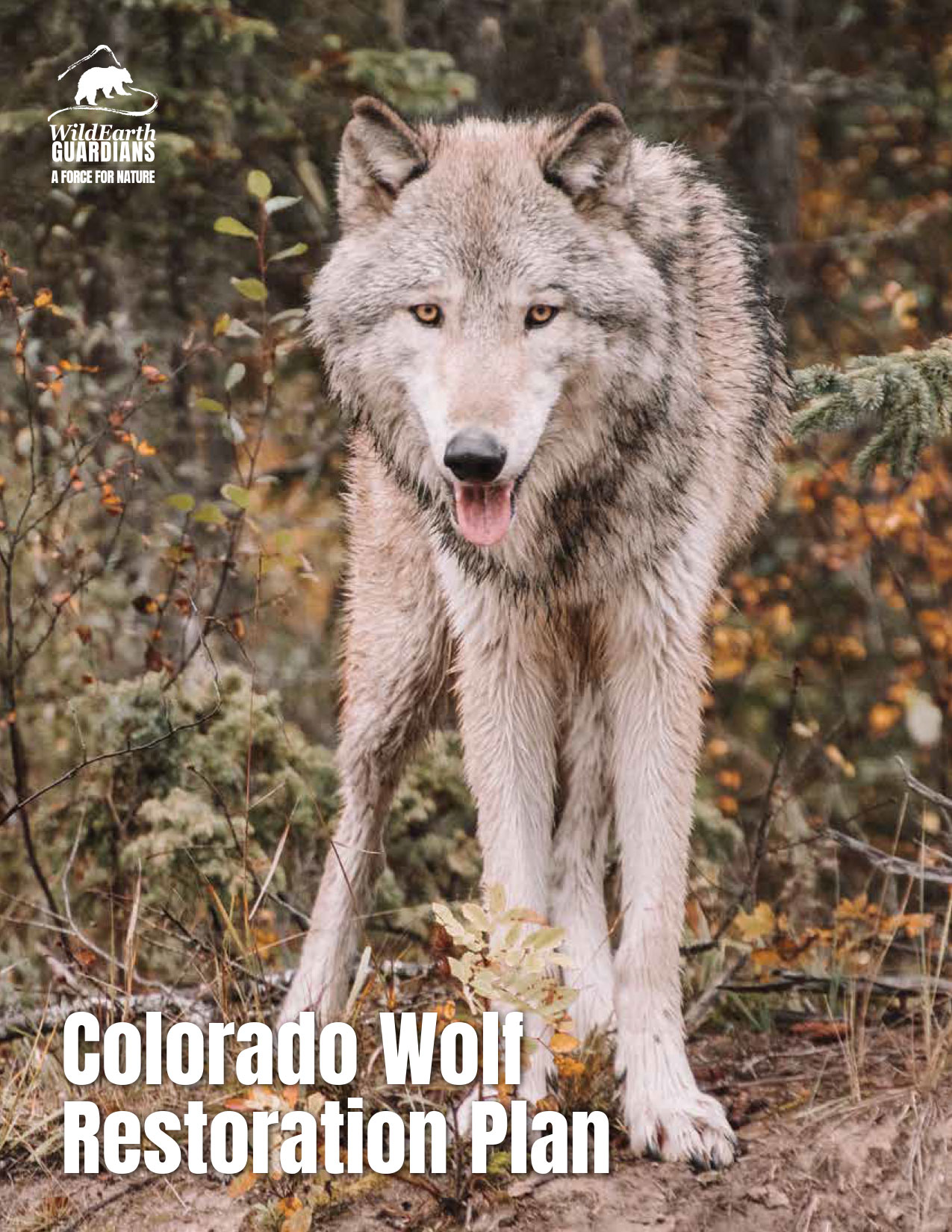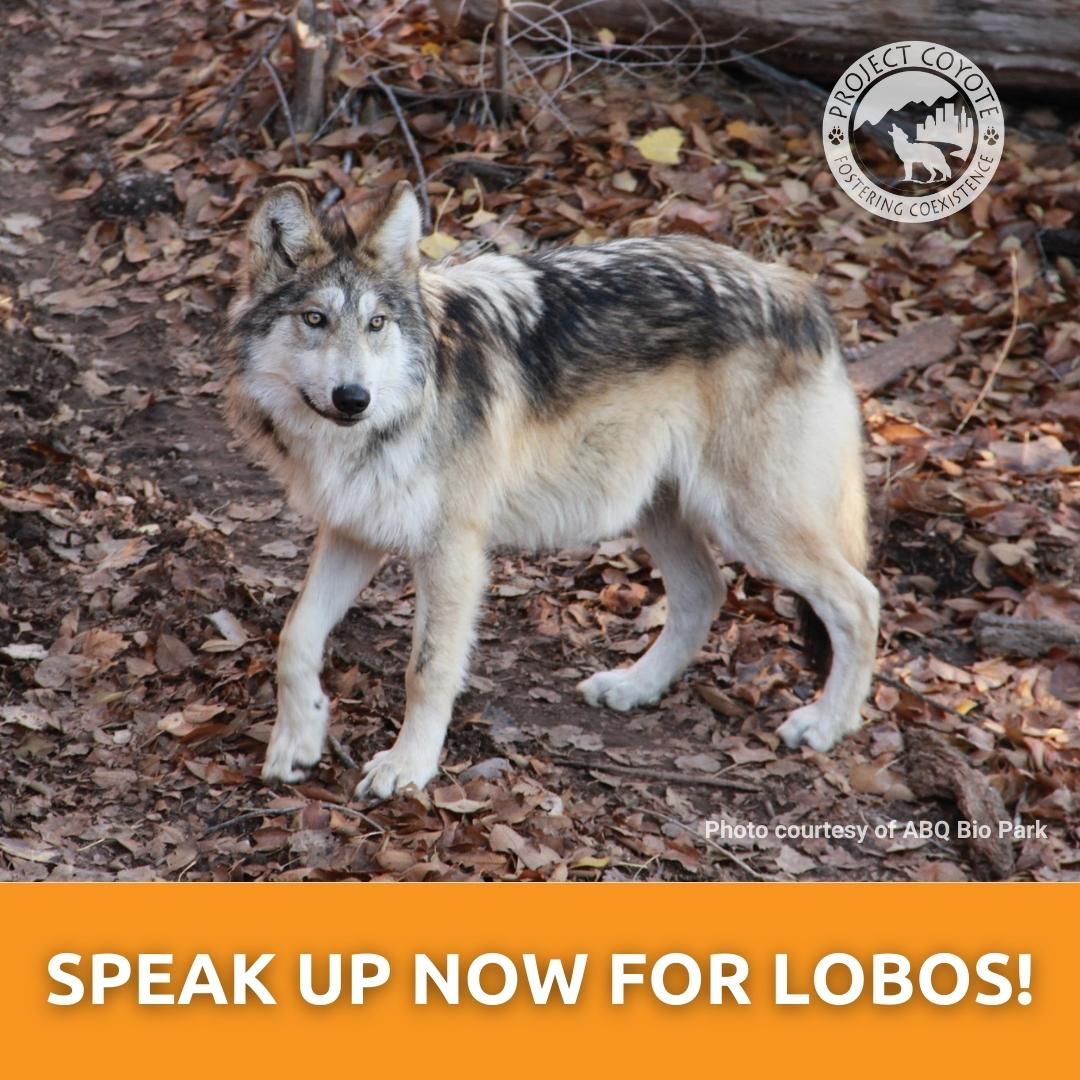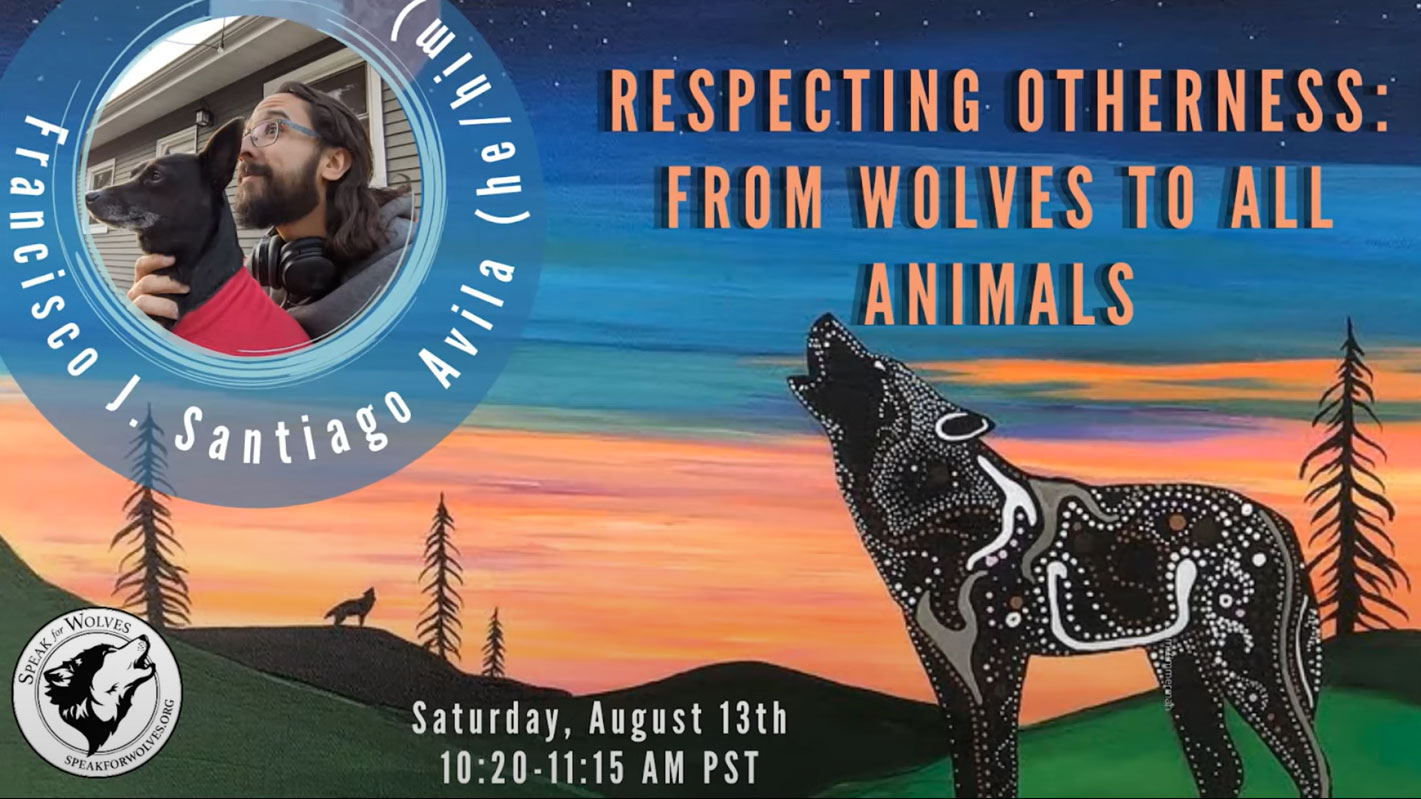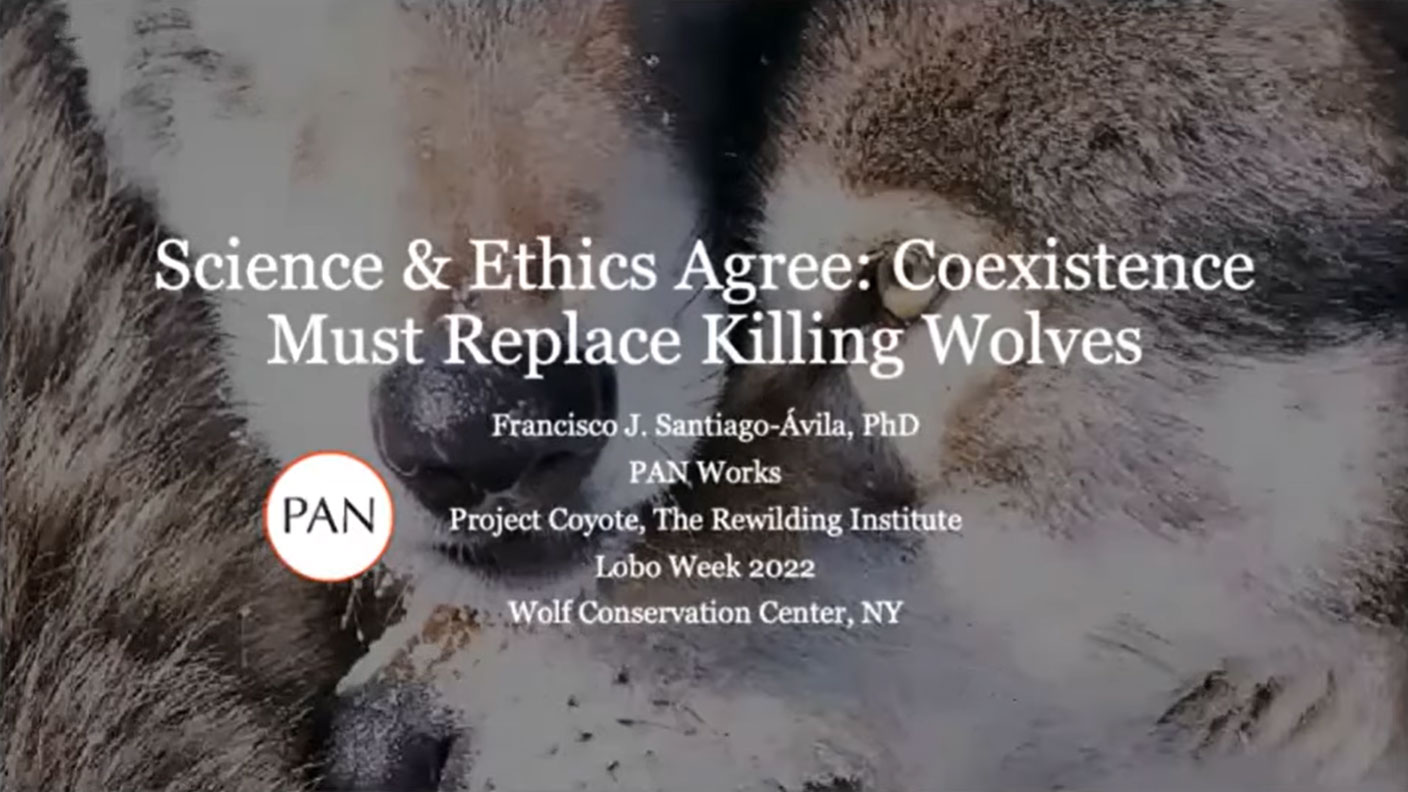
2022 ushered in highs and lows for wildlife and wild spaces across the country due to an out-of-sync governance system that unfortunately adheres to outdated traditions and minority interests above science and broad public sentiment. However, the consistent theme throughout the year remained Project Coyote’s steadfast voice for wild carnivores. With your support, we steered policy and landed monumental victories through regulatory reform, proactive public education and outreach, grassroots organization, and litigation when necessary.
Our record of success is growing with our successful lawsuit against Plumas and Sierra counties (CA) countering their failure to properly evaluate the environmental impacts of their U.S. Department of Agriculture’s Wildlife Services program. This led to a successful moratorium on lethal wildlife control until a full assessment is provided. We also worked in coalition to stop Washington’s proposed spring black bear hunt and saved hundreds of bears and countless bear cubs from being orphaned.
For wolves, this year has been particularly tumultuous. In February, we celebrated a federal district court ruling to relist wolves after the Trump administration removed their federal protections in January 2021 and had opened up expanded slaughter across their range. This ruling reinstates federal protections for gray wolves under the Endangered Species Act across the lower 48 states, except Northern Rocky Mountain wolves in Idaho, Montana and Wyoming. In response to the intense, continuous persecution of wolves in these states, Project Coyote launched a billboard campaign in Idaho and Montana, calling for the relisting of wolves in the Northern Rockies. We also filed a lawsuit in Montana State Court alleging that the state’s extreme anti-wolf hunting and trapping policies violate the Montana Constitution and several state and federal laws and secured a temporary restraining order against the brutal trophy hunting and trapping. We will continue these fights in the new year while pressing for full wolf recovery at the national level.
Project Coyote’s pack continued to grow this year with the addition of Renee Seacor as the Carnivore Conservation Advocate for Project Coyote and The Rewilding Institute, Jane Schuldiner as Project Coyote’s Development Operations Coordinator, Tamara Van Genderen as Project Coyote’s Community Marketing Manager, Jane McBride as Project Coyote’s Illinois Representative, and Christopher Lile as Project Coyote’s Operations & Communications Director.
In addition, Project Coyote’s conservation partnerships are ever-expanding and generating positive impacts for wildlife across the country. In conjunction with The Rewilding Institute and the Half-Earth Project, we launched Heartland Rewilding with dedicated new staff to reconnect and rewild at least 9 million acres of Midwestern lands and promote compassionate coexistence across the Mississippi River Watershed through advocacy and education. Our National Coalition to End Wildlife Killing Contests is also growing and successfully helped introduce federal legislation to ban wildlife killing contests on public lands across the country. Project Coyote’s Protect America’s Wolves campaign works tirelessly with the #RelistWolves campaign among many others. We also joined a newly formed coalition, Wildlife For All, that aims to reform state and federal wildlife agency governance by pushing for change that reflects diverse values for wildlife, more democratic decision-making and recognition of wildlife as a common good to be conserved for the benefit of all.
Our science, education and advocacy work will continue in 2023 with your continued support! Whether you take action in response to our action alerts, participate in webinars, donate at crucial moments, or sign petitions, your participation in our community makes a difference.
~ The Project Coyote Pack

COYOTE FRIENDLY COMMUNITIES™
Coexistence is at the heart of everything Project Coyote does, making our Coyote Friendly Communities program among our most vital work. Coyote conflict was a top topic this year, with many cities finding themselves in tough situations. Fortunately, Project Coyote supporters across the nation are always willing to speak up for North America’s song dog.
This year our staff and volunteers worked tirelessly to assist urban communities with non-lethal solutions to human-wildlife conflict by providing Living with Coyotes presentations to local communities across the country, distributing educational resources and signage, and assisting in developing coyote coexistence plans for municipalities. In Iowa, we are working with Des Moines and Urbandale to start development of city wide human-wildlife coexistence plans that protect both humans and wildlife. In Southern California, where wild space is at a premium, we provided community presentations and distributed education resources to share a message of coexistence. And in Dallas, TX, where a severe incident occurred this spring, we worked to provide resources and assist community advocates to reduce the risk of future conflict. Our Massachusetts representative, John Maguranis, shared his story in a Notes from the Field Blog on his work with local animal control officers to heroically rescue four coyote pups. In Northern California, Project Coyote’s ranching with wildlife coordinator Keli Hendricks provided numerous Living with Coyotes presentations and participated in an educational workshop on coyote coexistence for the City of San Rafael in partnership with Marin Humane and Marin County Parks.

We launched our new partnership with the National Animal Care & Control Association (NACA) to provide animal control officers (ACOs) with the knowledge and tools needed to foster peaceful coexistence between people and wildlife. Project Coyote and NACA released co-branded, science-based resources — including fact sheets, brochures, tip cards, and signage — that inform and educate on human-wildlife coexistence. These co-branded materials are available in both English and Spanish on the new partnership webpage. In July, we kicked off our partnership by hosting a webinar for ACOs where we introduced these resources and how to effectively use them to foster peaceful coexistence between people and wildlife.
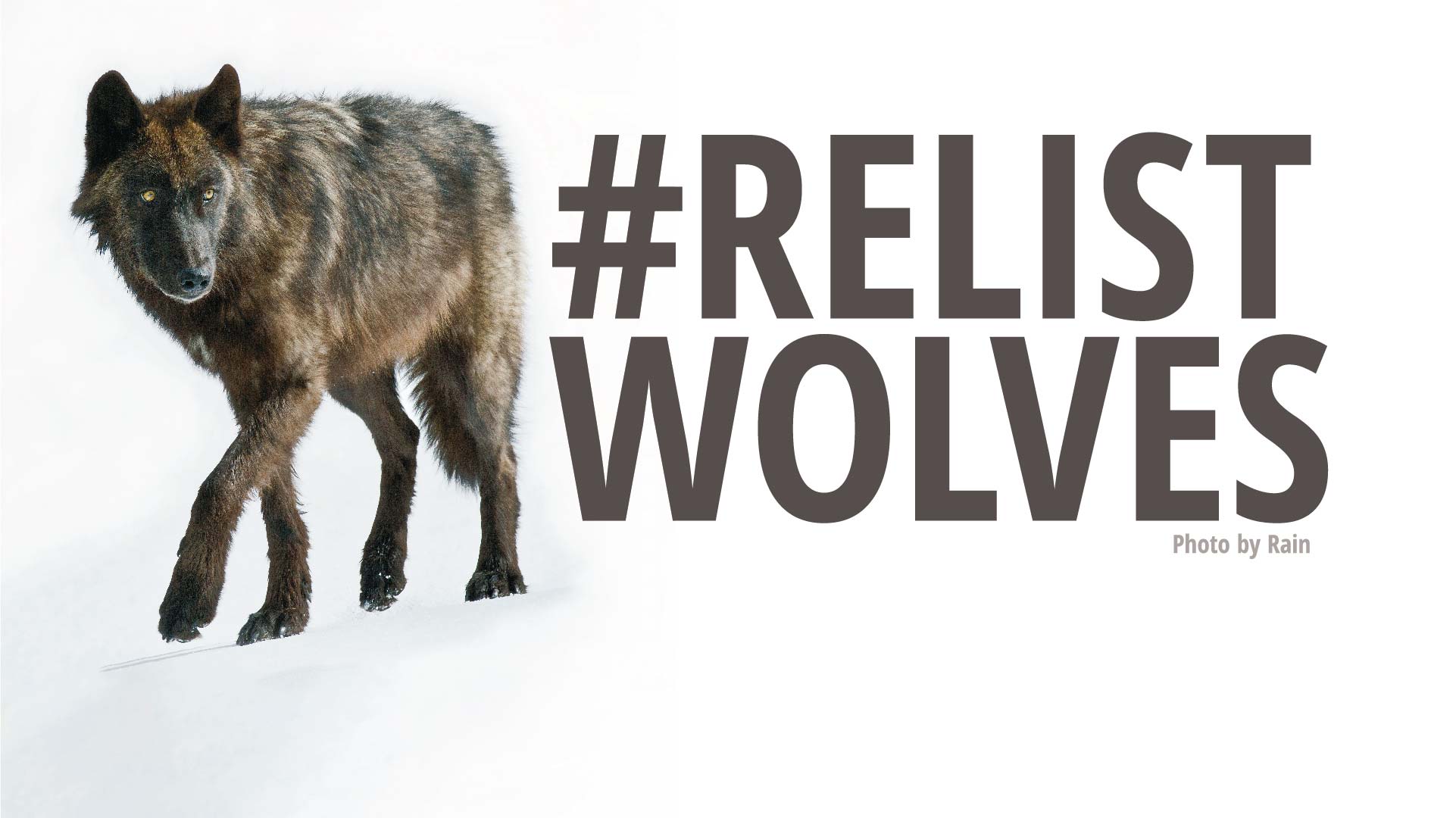
CARNIVORE CONSERVATION & COEXISTENCE
Protecting America’s Wolves
On February 10, a federal district judge in California restored Endangered Species Act protections for numerous wolf populations throughout the country at the request of multiple wildlife conservation organizations including Project Coyote. This decision was a major victory for wolves but did not include wolves of the Northern Rocky Mountains (Idaho, Montana and Wyoming). In response we revved up our efforts to raise awareness of their continued plight. We placed billboards in major highway corridors in Montana and Idaho urging people to demand the federal government emergency #RelistWolves — to protect those under the most threat in the Northern Rockies. We also launched our Protecting America’s Wolves online advocacy campaign. We equip our supporters with weekly targeted actions aimed at protecting our nation’s wolves with a particular focus on the wolves of the Northern Rockies.
We continued our advocacy efforts across wolves’ range, including in Colorado, where wolves are set to be reintroduced by 2023. We introduced an alternate wolf restoration plan with WildEarth Guardians and in partnership with 14 other wildlife organizations, provided to Colorado Parks and Wildlife (CPW) to offer a science-based alternative to the plan currently being developed. Project Coyote’s Renee Seacor and Drs. Fran Santiago-Ávila and Michelle Lute co-authored an opinion piece about this issue in the Grand Junction Daily Sentinel.
It was a busy year for lobos of the Southwest, with both a court ordered revision to the USFWS 10(j) management rule as well as the recovery plan for lobos published. We provided extensive comments to USFWS’s revised Mexican gray wolf recovery plan and mobilized our supporters to comment, providing talking points on how to implement the best available science to guide species’ recovery. Over 49,000 comments were submitted. The revised plan yet again failed to address the critical threat of human-caused mortality which is responsible for 70% of Mexican wolf deaths. We also advocated for the protection of the Seco Creek pack, a genetically valuable wolf pack residing in Gila National Forest that is currently under threat. Lastly, we mobilized our supporters to call for an investigation of the USDA federal Wildlife Services offices in New Mexico and Arizona in response to an investigative report published in The Intercept which uncovers systemic fraud and corruption by the Wildlife Services program in investigating possible livestock predation from wolves. The offices are now under investigation. We also advocated for Mexican gray wolves in the Arizona legislature by alerting Arizona supporters to oppose H.B. 2181, which liberalizes the killing of lobos.
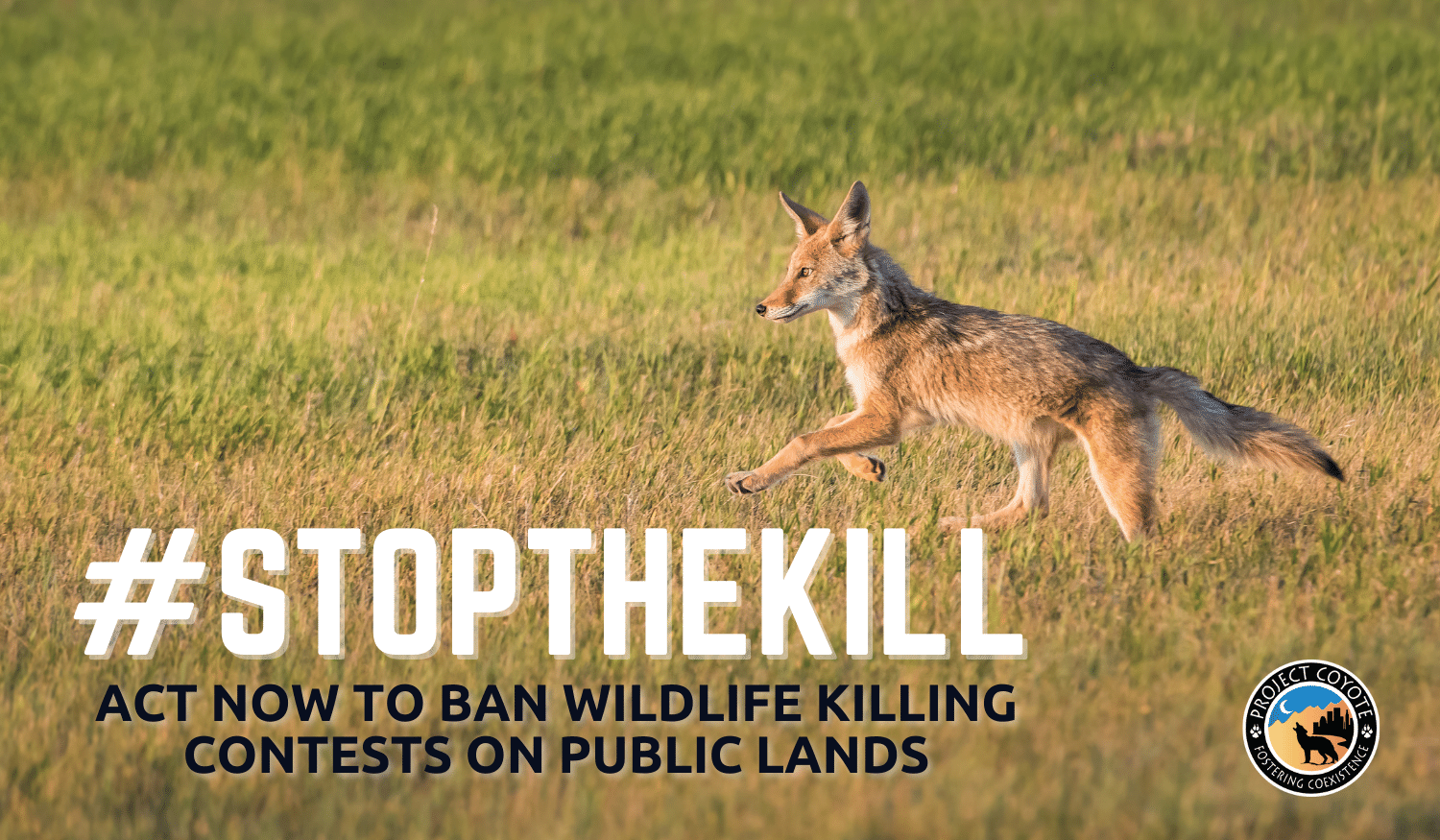
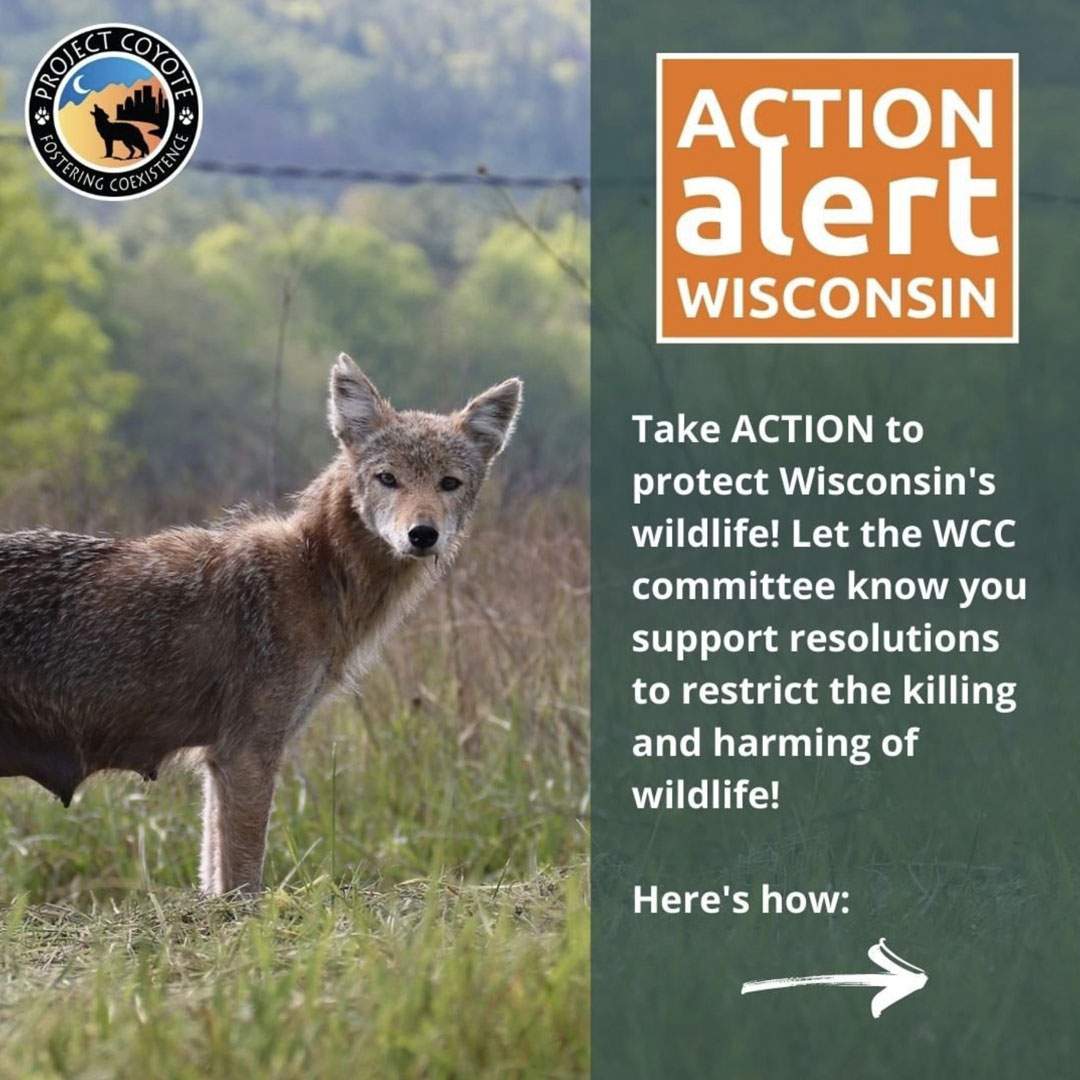
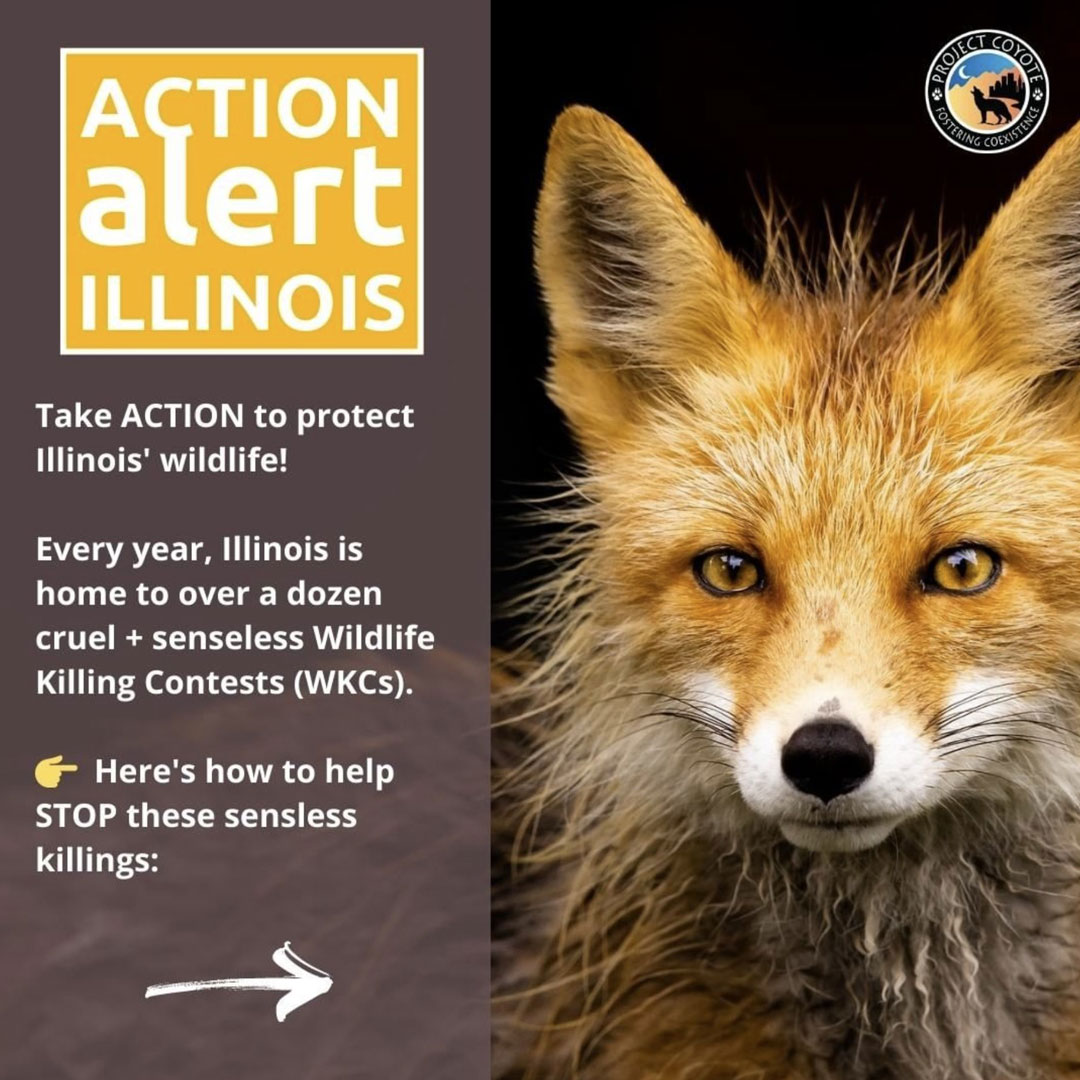
Ending Wildlife Killing Contests
As a culmination of our ongoing fight to end wildlife killing contests, U.S. Representative Steve Cohen (D – Tenn.) introduced legislation to ban killing contests on federal public lands that eventually garnered 26 co-sponsors. H.R. 7398, the Prohibit Wildlife Killing Contests Act of 2022, was an unprecedented opportunity to take our mission to end wildlife killing contests to the national stage and we will continue that fight with re-introduction of the bill in 2023–in partnership with our allies in the National Coalition to End Wildlife Killing Contests.
We partnered with and encouraged Wisconsin animal advocates to get involved in the Wisconsin Conservation Congress by submitting citizen resolutions and voting in the WCC Spring Hearing. Our efforts contributed to participation in the WCC Spring Hearing more than doubling relative to last year. More importantly, voting showed a notable shift toward more ethical and ecological practices. State-level wins included the approval of a resolution to create a regulation process for hunting contests. Many citizen resolutions passed in several counties, such as: banning chocolate bear bait, reducing the hound training season pursuing the black bear, eliminating compensation for hound owners, banning wolf hounding and ending killing contests in WI. Many of these wildlife-related resolutions were then referred to the WCC ‘Fur Harvest’ Committee, which decides to approve or reject the citizen-approved resolution for inclusion in the state-level survey during the next WCC Spring Hearing (2023). To that end, we continued our joint efforts with Wisconsin wildlife advocates to get the public involved in the Wisconsin Conservation Congress (WCC) citizen resolution approval process. Our supporters voiced their support for wildlife friendly resolutions in front of the ‘Fur Harvest’ Committee, including: banning coyote and wildlife killing contests, trapping and night-time hunting. Despite our help driving widespread support for a record 31 successful resolutions by over 16,000 in-state votes and testimony from 24 citizens (of 25 in attendance) during the committee meeting, the WCC ‘Fur Harvest’ Committee rejected every single one of the 31 public safety and wildlife friendly resolutions, citing tradition and reason over ethics and emotions. Instead, they advanced resolutions to expand bobcat hunting, beaver trapping and use of infrared lights to hunt predators. Our work in Wisconsin continues with opinion pieces (in the Price County Review,
On August 15th, Project Coyote and The Rewilding Institute invited the Illinois Department of Natural Resources (IDNR) to collaborate on draft rule-making to prohibit wildlife killing contests, which has been done by five other states. We also provided the IDNR with information on known WKC events in Illinois for the past several years, along with spatial information and an initial spatial and ecological analysis (including state maps) of impacts. IDNR should ban WKCs given the cruelty and disrespect these contests display towards wildlife, the latest scientific evidence on indiscriminate killing’s negative ecological impacts and the lack of evidence for such contests serving any conservation or management purpose. During the past months, we have increased outreach through social media and released a state campaign website, and are now focused on driving public comments, working to earn media coverage and building a growing coalition of local and state organizations to support our efforts moving forward.
Through a show of solidarity by the thousands of wildlife photographers and videographers who photograph wildlife and wildlands, we can put a stop to this bloodsport that unethically kills beautiful wild animals, destroys ecosystems, is contrary to modern science-based management principles, and degrades the value of individual animals.
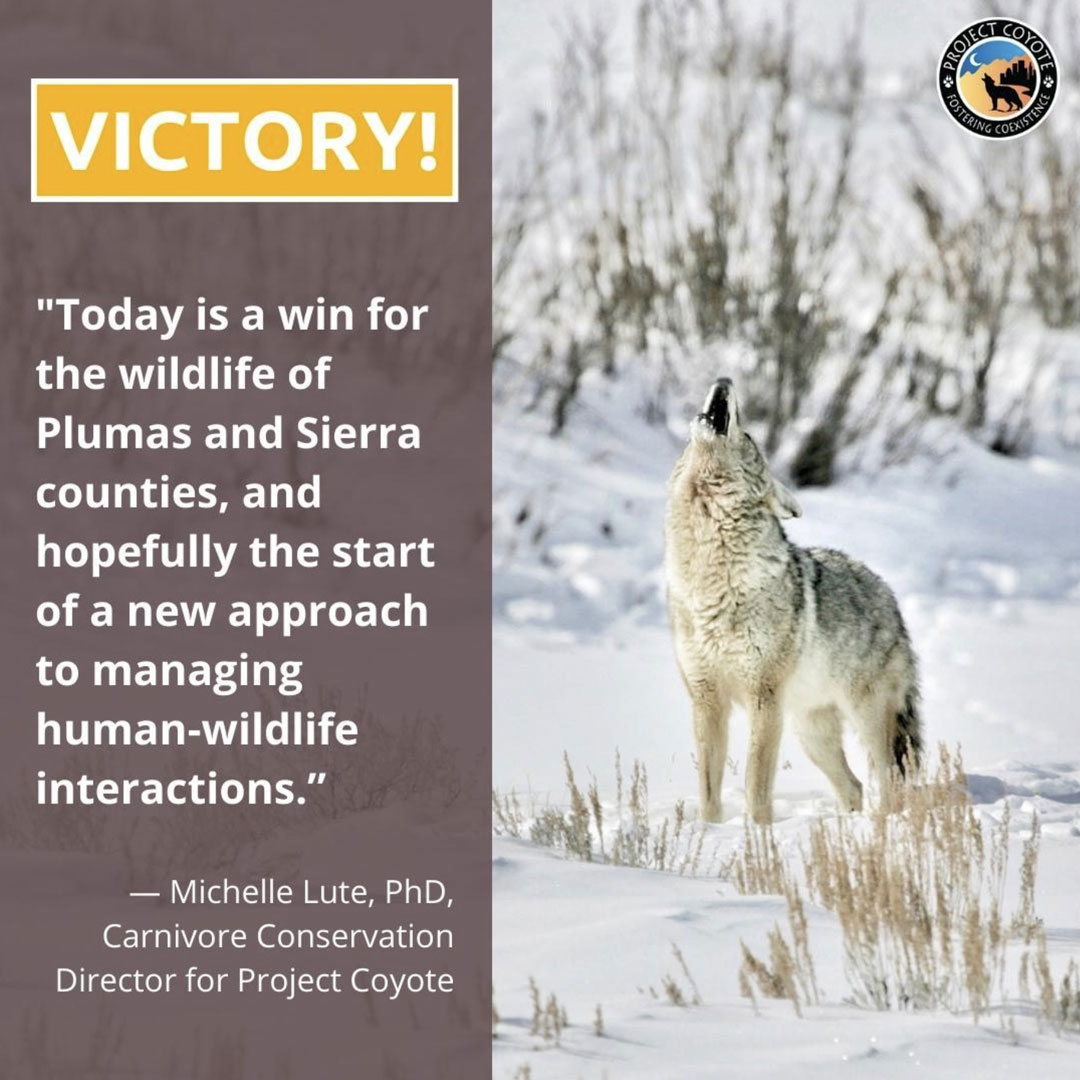
Ending the violent regime of U.S. Department of Agriculture’s Wildlife Services program
In a major victory for wildlife and their advocates, the California mountain counties of Plumas and Sierra agreed to immediately suspend their contract with the taxpayer-funded USDA Wildlife Services program, which indiscriminately kills wildlife that private parties deem a nuisance. This agreement settled a lawsuit brought by Project Coyote and Feather River Action! to stop Wildlife Services from killing wildlife without a full environmental impact report (EIR) pursuant to the California Environmental Quality Act (CEQA).
“Today is a win for the wildlife of Plumas and Sierra counties, and hopefully the start of a new approach to managing human-wildlife interactions,” said Michelle Lute, PhD in wildlife management and Carnivore Conservation Director for Project Coyote. “We are pleased that the Board of Supervisors for these counties has agreed to study the impacts of their killing contract with Wildlife Services. Now we hope they follow the best available science demonstrating that nonlethal methods are the most effective and humane ways to protect livestock and wildlife.”
Under the terms of the settlement, Plumas and Sierra counties are required to evaluate the ecological impacts of these killings and prepare an EIR before contracting with Wildlife Services in the future. By disallowing the use of indiscriminate snares set for coyotes and other wildlife targeted by Wildlife Services, cancellation of Plumas and Sierra’s lethal program will directly benefit the endangered Beckwourth wolf pack that has been found residing in Southern Plumas county.
Last year, Mendocino County ultimately chose to terminate its contract with Wildlife Services after multiple lawsuits and a groundswell of local residents pushed for an end to the deadly program. In the program’s place, Mendocino is now working with Project Coyote and allies to pursue non-lethal strategies for wildlife management. Project Coyote has offered the same assistance to Plumas and Sierra counties in developing a similar non-lethal program to address conflicts with livestock.
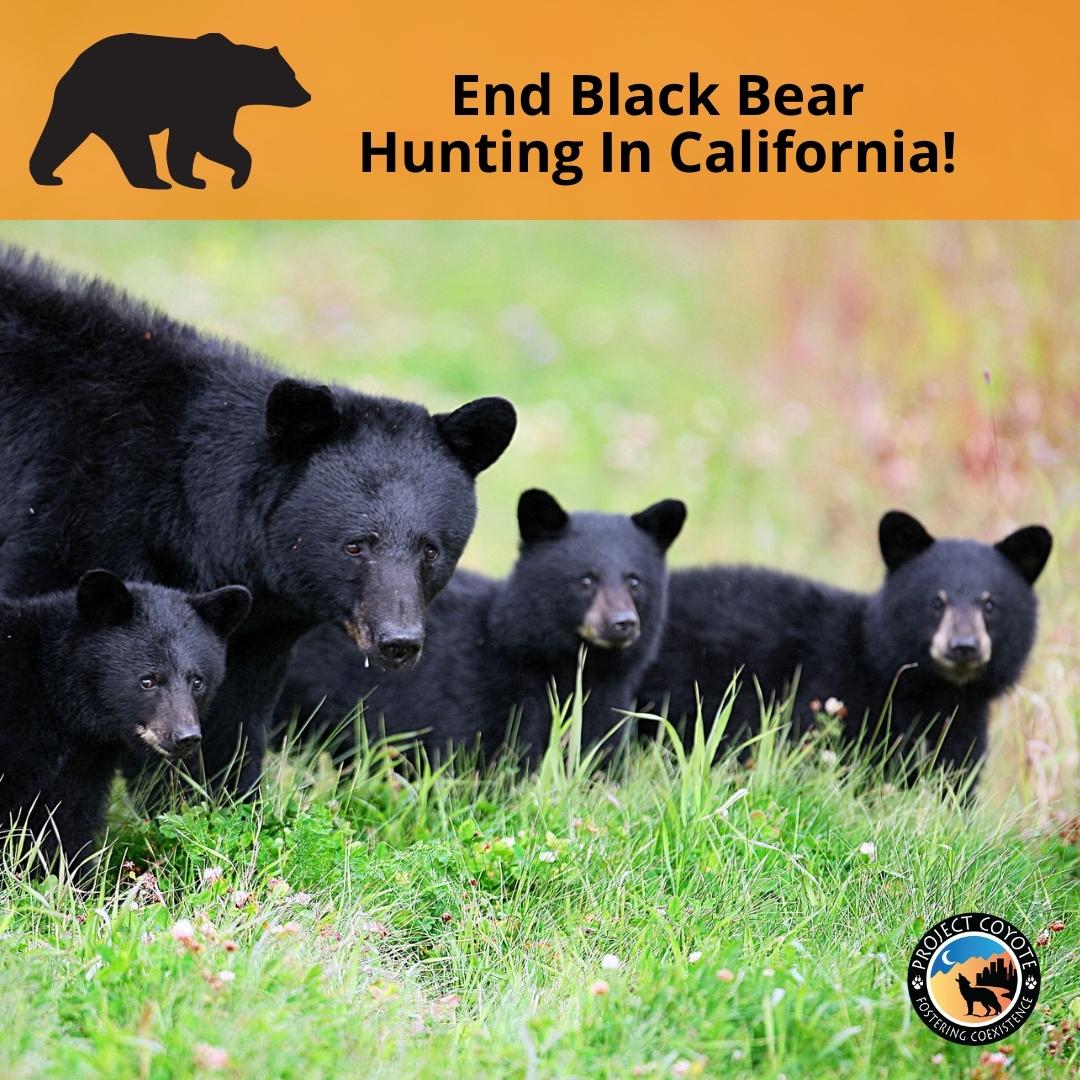
Protecting America’s black bears from trophy hunting and climate change
The plight of California’s black bears continues and our work to protect bears revved up this year. In January, Project Coyote partnered with the Humane Society of the US and BEAR League to galvanize support for a petition asking for a ban of black bear hunting in the state. Despite the increasing threats of drought, wildfires and vehicle collisions threatening bears across the state, the California Fish and Game Commission denied the petition. We mobilized our supporters to attend the September California Fish and Game Wildlife Resources Committee meeting to testify in opposition to trophy hunting and in support of science-based management and ethical coexistence. We will continue this collaboration as we oppose another petition to increase available bear tags per hunter and aim to influence a forthcoming bear management plan.
Last year, we successfully defeated a proposed and ethically indefensible spring black bear hunt in Washington. This year, bear hunters returned with a petition to the Washington Fish and Wildlife Commission to reinstate and establish a permanent spring black bear hunt. In response to our collective advocacy efforts, we successfully canceled this year’s spring black bear hunt! In March, the Washington Fish and Wildlife Commission voted 5-4 to cancel a spring bear hunt from proceeding. Leading up to the vote, we mobilized our supporters, offered written comments and oral testimony to the Washington Fish and Wildlife Commission in opposition to the hunt. This victory was solidified in November, when the Commission voted to establish a permanent state policy eliminating recreational hunting of black bears in the spring!
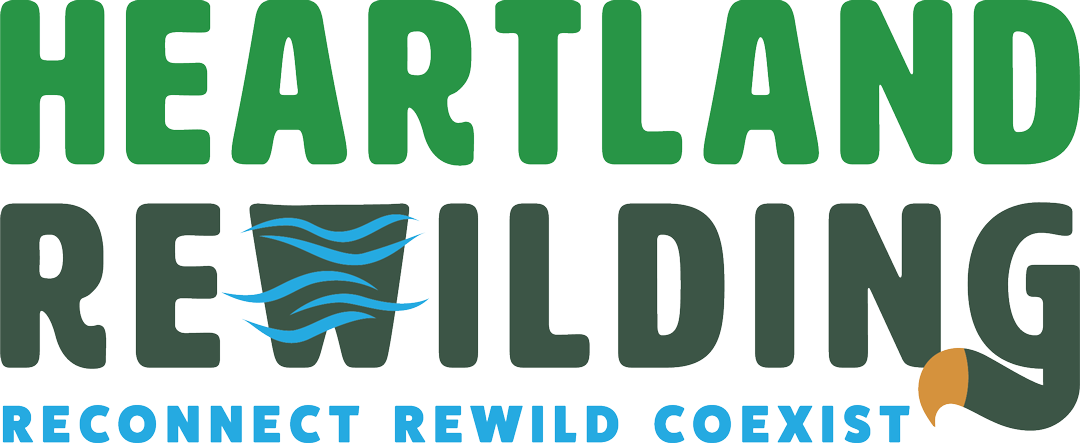
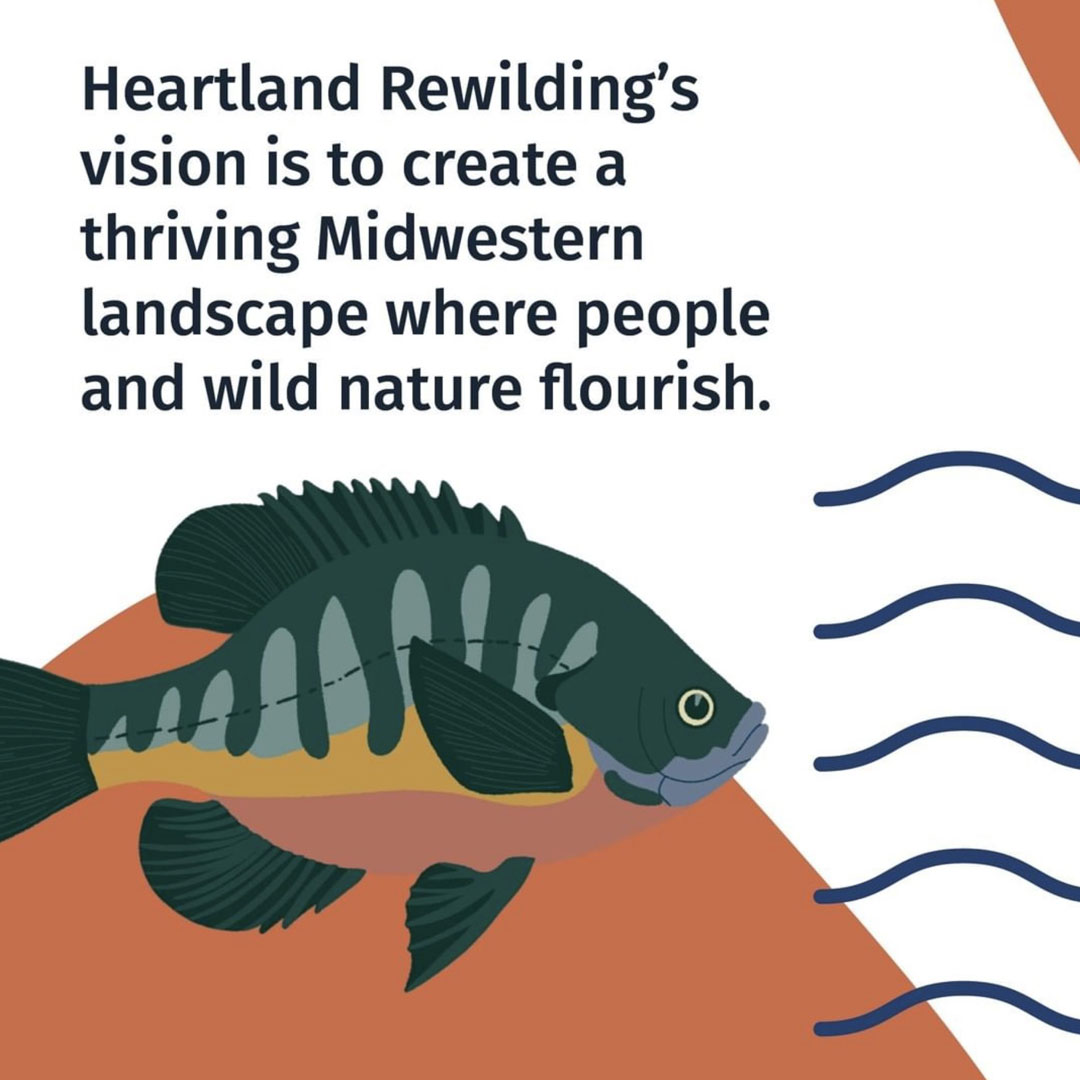
Promoting coexistence and rewilding in the Heartland
This year we officially launched a bold initiative, Heartland Rewilding, which seeks to create a Midwestern landscape where humans and nature thrive. We will accomplish this by focusing on protecting, reconnecting, and restoring wildlands and sharing a message of compassionate coexistence.
Heartland Rewilding is a partnership of Project Coyote, The Rewilding Institute and the Half-Earth Project. We are dedicating staff and other resources to support rewilding and coexistence efforts in the Mississippi River watershed. This watershed, the fourth largest in the world, covers one-third of North America and is too often undervalued and under-appreciated despite global importance and beauty. Devastatingly, the Midwest has lost 90% of its natural areas. We must now strive to restore balance to wildlands and wildlife and work to recreate a robust, healthier landscape for humans and wildlife.
Heartland Rewilding aims to work with a network of environmental organizations and government agencies to provide the strategy, staff, and resources needed to protect wildlife and advocate for reform in conservation policies and practices using sound science. The initiative will build a framework for rewilding large landscapes across the entire Mississippi River watershed, which spans from New York to Montana and from Canada to the Gulf of Mexico.
Building a thriving Midwestern landscape where people and wild nature thrive will take all of us. You can learn more about Heartland Rewilding and how you can get involved by visiting our website HeartlandRewilding.org. And be sure to follow us on Facebook and Instagram for all the latest news.

KEEPING IT WILD ~ Youth Education & Outreach
Project Coyote continues to expand our youth education and outreach program, Keeping It Wild. This program fosters awareness, knowledge and respect for nature, wildlife, and biodiversity while inspiring a restorative relationship with nature. We believe that informed, inspired and empowered students will act wisely on behalf of animals and the environment.
This past spring we did an assessment of Keeping It Wild to ensure we are providing educators with the tools and resources they need to engage students. A survey was designed to ask educators which topics they find challenging, and what materials and resources they find most helpful. We distributed this survey throughout the summer and received 46 responses. The results of this survey will assist us in expansion of our educational materials and offerings. We look forward to working with educators to develop these materials and share a message of coexistence with youth across the country.
Project Coyote showed children the magic of coexistence and the importance of wild carnivores for a healthy environment at festivals and events!
- April 16: Earth Day at the Oakland Zoo, California
- April 23: Springfield Earth Awareness Fair at the Henson Robinson Zoo, Illinois
- April 24: Children’s Birding and Nature Festival at Point Reyes State Park, California
- June 11: Presentation about living with bobcats with Project Coyote’s Keeping It Wild Youth Education Coordinator Sarah Killingsworth in Marin County, California
- June 11-12: 2022 Fairfax Festival and Ecofest in Fairfax, California
Project Coyote continues to partner with the National Animal Care and Control Association in coordinating efforts to encourage coexistence between people, domestic animals, and our native predators. We’ve launched a new webpage as a one-stop-shop for animal control officers nationwide to access co-branded Coyote Friendly Communities signage and information. Future additions to the website will include videos and other resources so those in the field can share best practices.
SCIENCE & STEWARDSHIP
- Lute, Michelle L., Francisco J. Santiago-Ávila. “Reforming Conservation Governance to Promote Coexistence and Multi-species Justice.” North American Congress for Conservation Biology. Reno, NV. July 18, 2022 & Part of the Symposia: ‘Where Psychology, Ecology and Ethics Meet on the Road to Coexistence’. International Wildlife Coexistence Conference. Chico Springs, MT. October 18, 2022.
- Santiago-Ávila, Francisco J. “Respecting Otherness: From Wolves To All Animals.” Speak For Wolves 2022 Conference. March 31, 2022.
- Santiago-Ávila, Francisco J. “Science & Ethics Agree: Coexistence Must Replace Killing Wolves.” Webinar, Lobo Week 2022. Wolf Conservation Center. March 31, 2022.
- Santiago-Ávila, Francisco J., Liv Baker, Kristin L. Stewart, and William S. Lynn. “Science & Ethics Agree, Coexistence Must Replace Killing Wolves: Parts 1 & 2” People, Animals and Nature Medium. February 17 and 24, 2022.
- Lynn, William S. and Francisco J. Santiago-Ávila. (2022) “Outdoor cats: Science, Ethics, and Politics”. In Lynn, William S., Francisco J. Santiago-Ávila and Kristin L. Stewart, eds.. “Special Issue on Outdoor Cats.” Society and Animals.
- Lynn, William S., Francisco J. Santiago-Ávila and Kristin L. Stewart. (2022) “Outdoor cats: An Introduction”. In Lynn, William S., Francisco J. Santiago-Ávila and Kristin L. Stewart, eds. “Special Issue on Outdoor Cats.” Society and Animals.
- Lynn, William S., Francisco J. Santiago-Ávila and Kristin L. Stewart, eds. (2022). “Special Issue on Outdoor Cats.” Society and Animals.
- Santiago-Ávila Francisco J., Suzanne Agan, Joseph W. Hinton and Adrian Treves. (2022) “Evaluating how management policies affect red wolf mortality and disappearance.” Stage 2 Registered Report. Royal Society Open Science 9: 210400.
- Santiago-Ávila, Francisco J., and Adrian Treves. (2022). “Poaching of protected wolves fluctuated seasonally and with non-wolf hunting.” Scientific Reports 12, 1738.
- Castelló, Pablo P. and Francisco J. Santiago-Ávila. (2022) “Conservation after Sovereignty: Deconstructing Australian Policies Against Horses with a Plea And Proposal.” Hypatia, 37(1), 136-163.
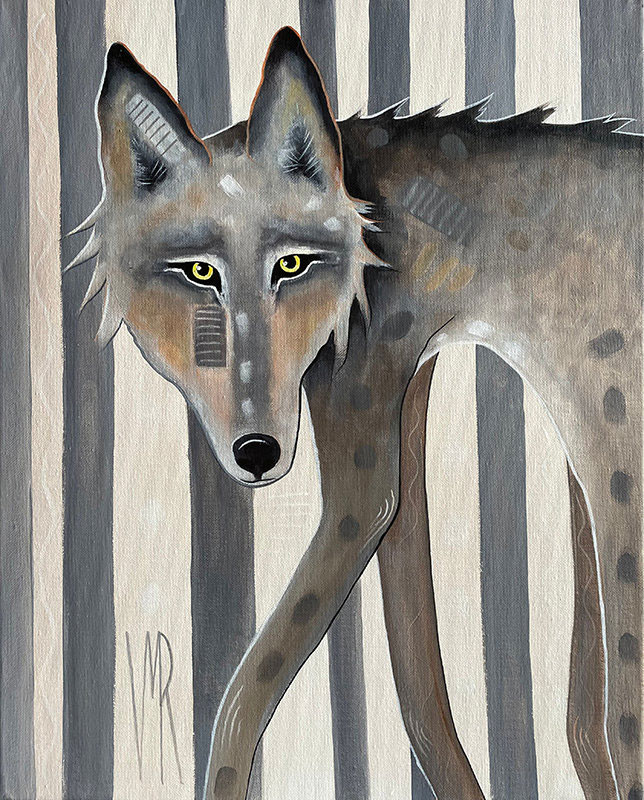
ARTISTS FOR WILD NATURE
Two fabulous artists have joined our impressive lineup of Artists for Wild Nature:
- Shaunna Costicov-McCombe is an artist and photographer who dedicates a lot of her time and work to non-profit causes. She’s currently designing a new wolf logo for our Protect America’s Wolves campaign.
- Alexandra Saunders is a Bay Area based wildlife conservation artist creating wildlife portraits working in oils, colored pencils and pastels. In her own words, “I have worn many hats in my life but the one constant is my love for animals and being surrounded by the wonder of nature and earth’s beauty. My art is central to my way of expressing my deep and abiding reverence and love for our Planet & all living beings.”
- Longtime Artist for Wild Nature Virginia Romero’s work featuring coyotes and other maligned and misunderstood wild animals was featured in an article in the Las Cruces Bulletin: “Much of Romero’s art reflects her personal connection to nature and wildlife. She has a particular affinity for coyotes, who frequently show up in her artwork. Having looked one in the eye, Romero said she recognizes their right to co-exist… ‘I’m painting the primal connection we share with everything on the planet. Animals are reflecting that color essence of the universe.’”
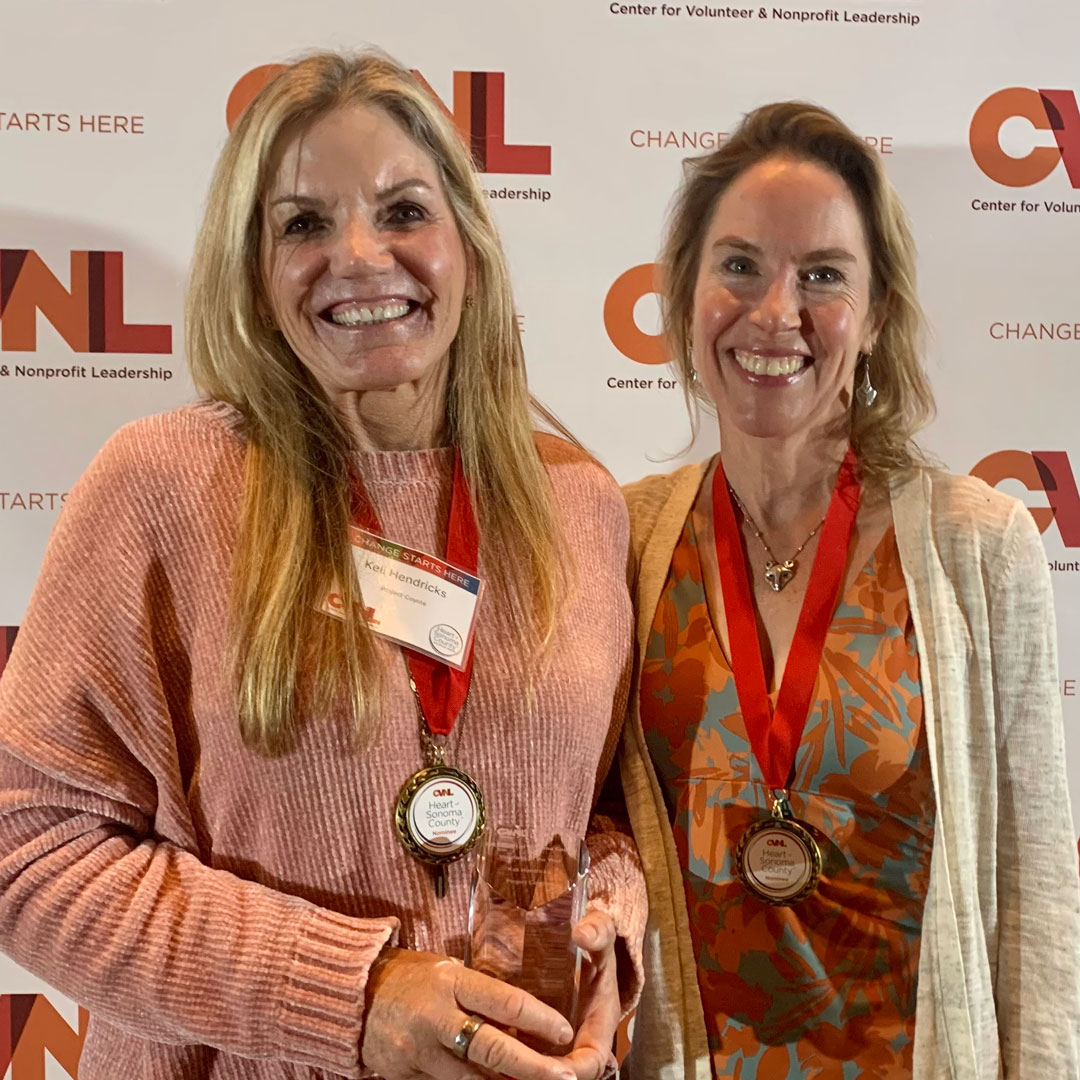
RANCHING WITH WILDLIFE
- Sometimes coexistence takes a whole village. When local advocate, Ben Nuckolls, contacted Sierra Nevada Representative Fauna Tomlinson about a hobby farmer adopting pygmy goats only to find a mama coyote denning within the newly erected enclosure, the whole Project Coyote pack pitched in to help. While Fauna sent Foxlights (i.e., visual predator deterrent), Dr. Michelle Lute, Ranching with Wildlife Coordinator Keli Hendricks and Program Associate Erin Hauge advised local advocates and the farmer on best practices to keep goats and coyotes safe.
- Keli Hendricks was appointed to the Sonoma County Fish & Wildlife Commission, an advisory board that grants public funds for protection and preservation of local fish and wildlife. Keli is also a dedicated wildlife rehabilitator and stays busy helping the local community better coexist with wildlife in her role as Project Coyote’s Ranching with Wildlife Coordinator. If you’ve contacted Project Coyote with questions about coexisting with coyotes in rural to urban settings, you’ve probably heard from Keli and her vast wealth of knowledge on the issue. Keli’s great efforts were also recognized this year with the Heart of Sonoma County Volunteer of the Year Award by the Center for Volunteer and Nonprofit Leadership.

EVENTS
Project Coyote continued to engage the public and disseminate our message of compassionate coexistence through multimedia platforms and in-person events. Many members of the Project Coyote pack have been interviewed and featured in podcasts, news articles and other media which can be read here and here. Check out our Webinars, especially our webinars featuring Dan Flores and his new book Wild New World, Dr. Francisco Santiago-Ávila on nonhuman values, conservation and rewilding, and John Maguranis and Jerrica Owens of National Animal Care & Control Association. Also be sure to check out our Events pages for past media and news about upcoming presentations.

